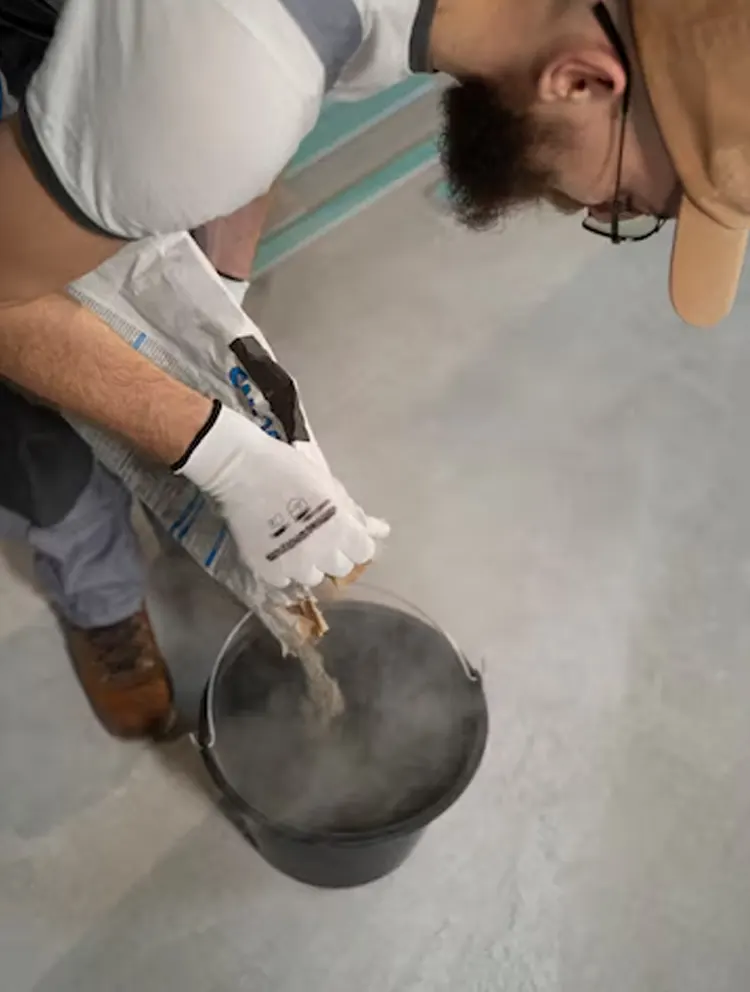
Safeguarding Natural Stone During Construction
Once the stone reaches the project site, it requires careful handling. The responsibility for this typically falls on the builder, tiler, or stonemason. However, after the stone tiles and slabs are installed, the question of who is responsible for their protection often arises—and is, unfortunately, too frequently overlooked.
After completing their work, tilers or stonemasons usually move on to their next project, leaving the newly installed stone vulnerable. Other tradespeople then come onto the site, often walking over the surfaces with heavy boots, dropping tools, spilling food and drinks, dragging heavy equipment, and inadvertently causing damage such as scratches, etch marks, stains, chips, and cracks.
All the effort involved in sourcing, quarrying, producing, and installing the stone is compromised if temporary surface protection is not considered. Neglecting this simple and inexpensive step can lead to costly and preventable damage. By investing in temporary protective products and ensuring their proper installation, you can grant unrestricted access to all workers on a project site while safeguarding the stone surfaces from harm.
When selecting temporary protection for natural stone floors, consider products that offer the following features:
It is crucial to avoid using any sticky tapes that could come into contact with the stone surface. Before applying protection, the floor should be at least dry-vacuumed, though thorough cleaning and sealing the surface beforehand is recommended.
Each project may require a tailored solution, so it’s essential to address temporary surface protection at the appropriate time to prevent avoidable damages. We are here to provide the right solution for your needs. Call us today at 03-9429 1223 to discuss your requirements.
Our Expertise
-
Material Sourcing
-
Material Suitability
-
Material Testing
-
Factory Fabrication
-
Temporary Protection
-
Installation Techniques
-
Surface Finishes
-
Surface Protection
-
Maintenance & After Care
-
Stone Restoration
Our Clients
Talk to Our Stone Consultants
Arrange a session with our experts to explore how Stone Doctor can assist you in addressing your business challenges.







